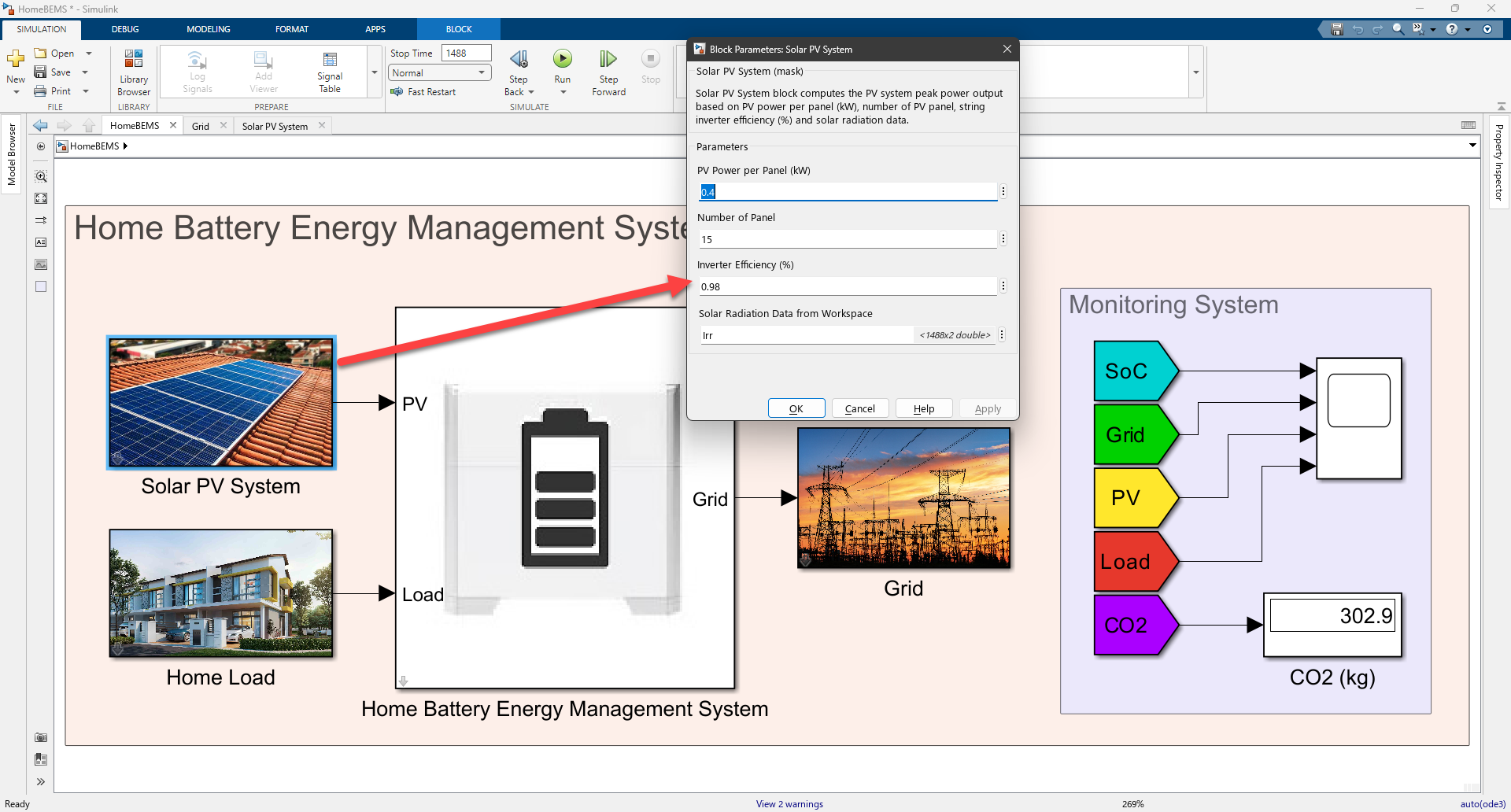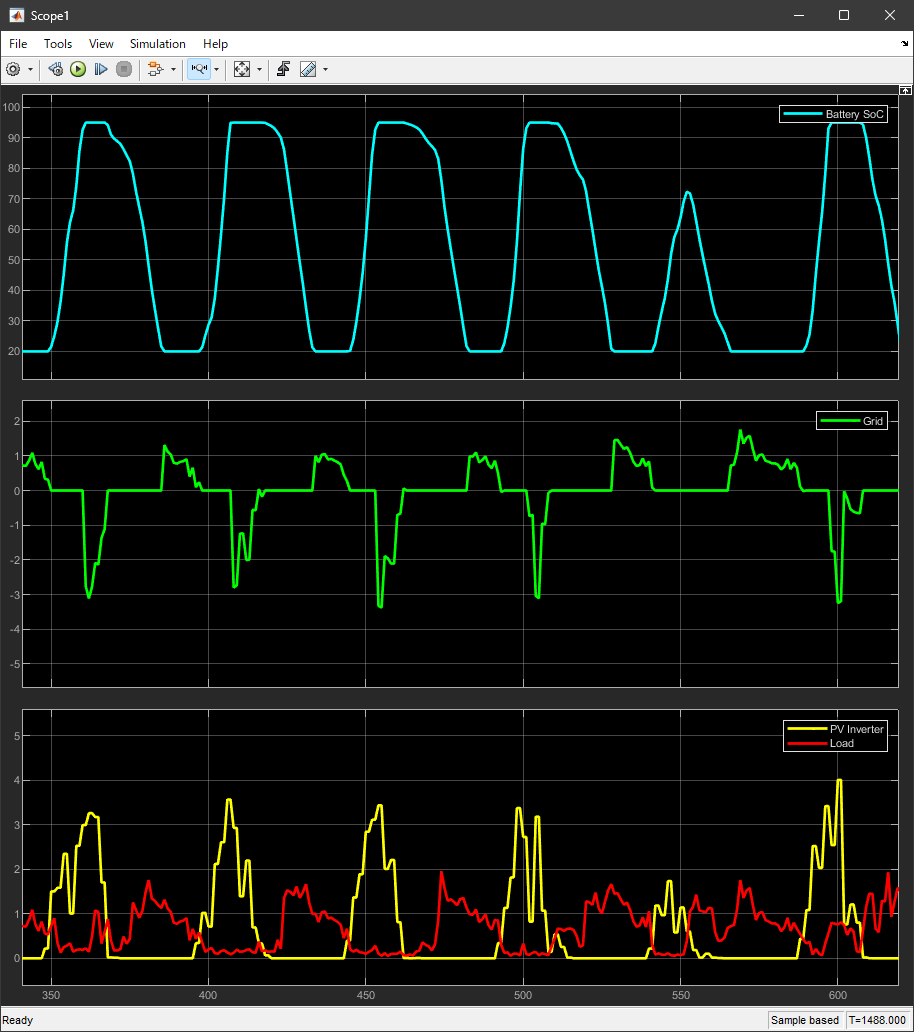
2

Simulate Home Battery Management System
source link: https://blogs.mathworks.com/pick/2023/08/15/simulate-home-battery-management-system/
Go to the source link to view the article. You can view the picture content, updated content and better typesetting reading experience. If the link is broken, please click the button below to view the snapshot at that time.

Simulate Home Battery Management System » File Exchange Pick of the Week
I met Dr. Rodney Tan at a virtual educator workshop we held last year, and there I learned that he is very active in the community with over 100 File Exchange entries. His entries are educational in nature, and they help illustrate concepts through simulations and interactivity.
The other day, I was looking through his entries, and this one on Home Battery Management System caught my attention. One of my neighbors just recently installed an array of solar panels on their roof and a home energy management system. Since then, I had been curious about how it all worked. When I read up on it, I saw phrases such as photovoltaic capacity, number of panels, inverter efficiency, and state of charge. This Simulink model by Dr. Tan helped me better understand how it worked by connecting these parameters to the simulation output.

Sample input data sets (solar radiation and home load) are provided with this entry, so you can get a simulation of how the battery state of charge changes over time and how much energy is imported from or exported to the grid.

From the scope, you can see that the state of charge increases with solar radiation and decreases with load. Energy is exported to the grid when the state of charge is above a threshold and is imported from the grid when the state of charge is below a threshold.
Simulation models such as this help deepen the understanding of complex concepts.
Comments
Give this entry a try and leave a comment for Dr. Tan. If you liked this entry, you should also check out the other entries by him. In addition to macro-level models such as this entry, he also has many component-level simulation models.
Recommend
About Joyk
Aggregate valuable and interesting links.
Joyk means Joy of geeK